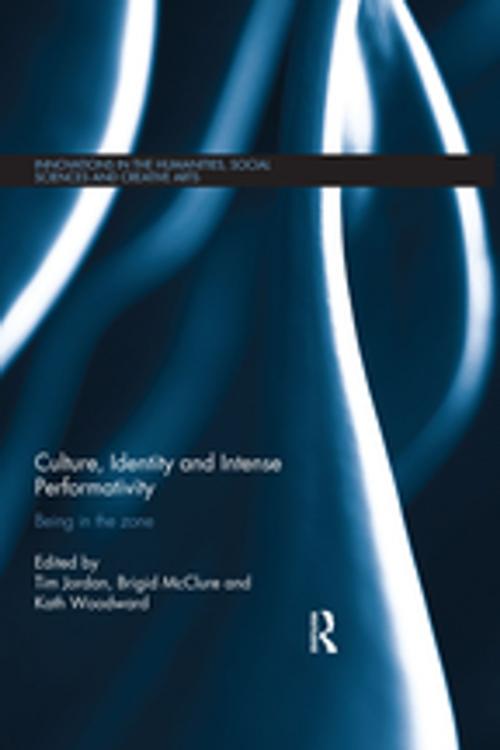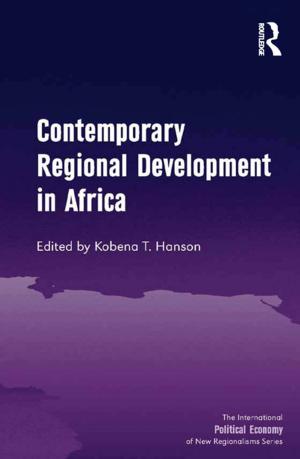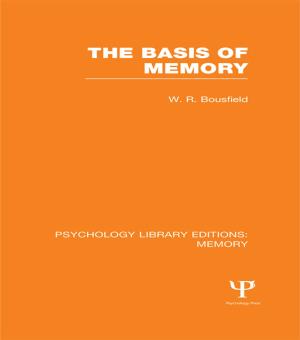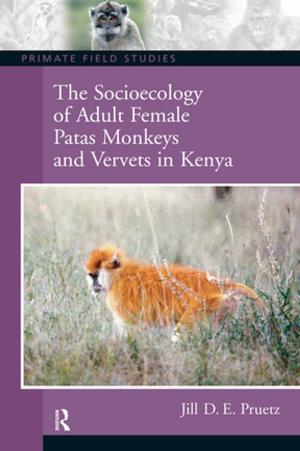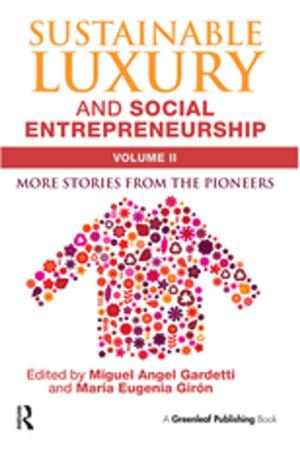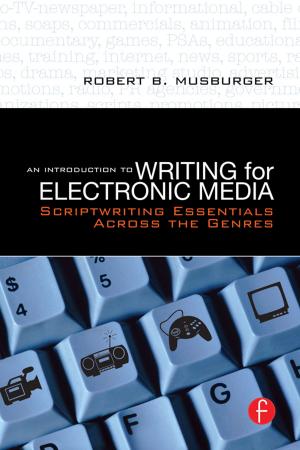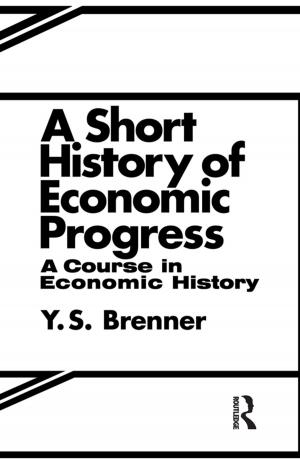Culture, Identity and Intense Performativity
Being in the Zone
Nonfiction, Social & Cultural Studies, Social Science, Sociology| Author: | ISBN: | 9781317288152 | |
| Publisher: | Taylor and Francis | Publication: | January 12, 2017 |
| Imprint: | Routledge | Language: | English |
| Author: | |
| ISBN: | 9781317288152 |
| Publisher: | Taylor and Francis |
| Publication: | January 12, 2017 |
| Imprint: | Routledge |
| Language: | English |
‘Being in the zone' means performing in a distinctive, unusual, pleasurable and highly competent way at something you already regularly do: dancing or playing a viola, computer programming, tennis and much more. What makes the zone special? This volume offers groundbreaking research that brings sociological and cultural studies to bear on the idea of being in the zone. There is original research on musicians, dancers and surfers which shows that being in the zone far from being exclusively individualised and private but must be understood as social and collective and possibly accessible to all. The zone is not just for elite performers.
Being in the zone is not just the province of the athlete who suddenly and seemingly without extra effort swims faster or jumps higher or the musician who suddenly plays more than perfectly, but also of the doctor working under intense pressure or the computer programmer staying up all night. The meaning of such experiences for convincing people to work in intense conditions, often with short term contracts, is explored to show how being in the zone can have problematic effects and have negative and constraining as well as creative and productive implications.
Often being in the zone is understood from a psychological viewpoint but this can limit our understanding. This volume provides the first in-depth analysis of being in the zone from social and cultural viewpoints drawing on a range of theories and novel evidence.
Written in a stimulating and accessible style, Culture, Identity and Intense Performativity: Being in the Zone will strongly appeal to students and researchers who aim to understand the experience of work, creativity, musicianship and sport. Issues of the body are also central to being in the zone and will make this book relevant to anyone studying bodies and embodiment . This collection will establish being in the zone as an important area of enquiry for social science and the humanities.
‘Being in the zone' means performing in a distinctive, unusual, pleasurable and highly competent way at something you already regularly do: dancing or playing a viola, computer programming, tennis and much more. What makes the zone special? This volume offers groundbreaking research that brings sociological and cultural studies to bear on the idea of being in the zone. There is original research on musicians, dancers and surfers which shows that being in the zone far from being exclusively individualised and private but must be understood as social and collective and possibly accessible to all. The zone is not just for elite performers.
Being in the zone is not just the province of the athlete who suddenly and seemingly without extra effort swims faster or jumps higher or the musician who suddenly plays more than perfectly, but also of the doctor working under intense pressure or the computer programmer staying up all night. The meaning of such experiences for convincing people to work in intense conditions, often with short term contracts, is explored to show how being in the zone can have problematic effects and have negative and constraining as well as creative and productive implications.
Often being in the zone is understood from a psychological viewpoint but this can limit our understanding. This volume provides the first in-depth analysis of being in the zone from social and cultural viewpoints drawing on a range of theories and novel evidence.
Written in a stimulating and accessible style, Culture, Identity and Intense Performativity: Being in the Zone will strongly appeal to students and researchers who aim to understand the experience of work, creativity, musicianship and sport. Issues of the body are also central to being in the zone and will make this book relevant to anyone studying bodies and embodiment . This collection will establish being in the zone as an important area of enquiry for social science and the humanities.
